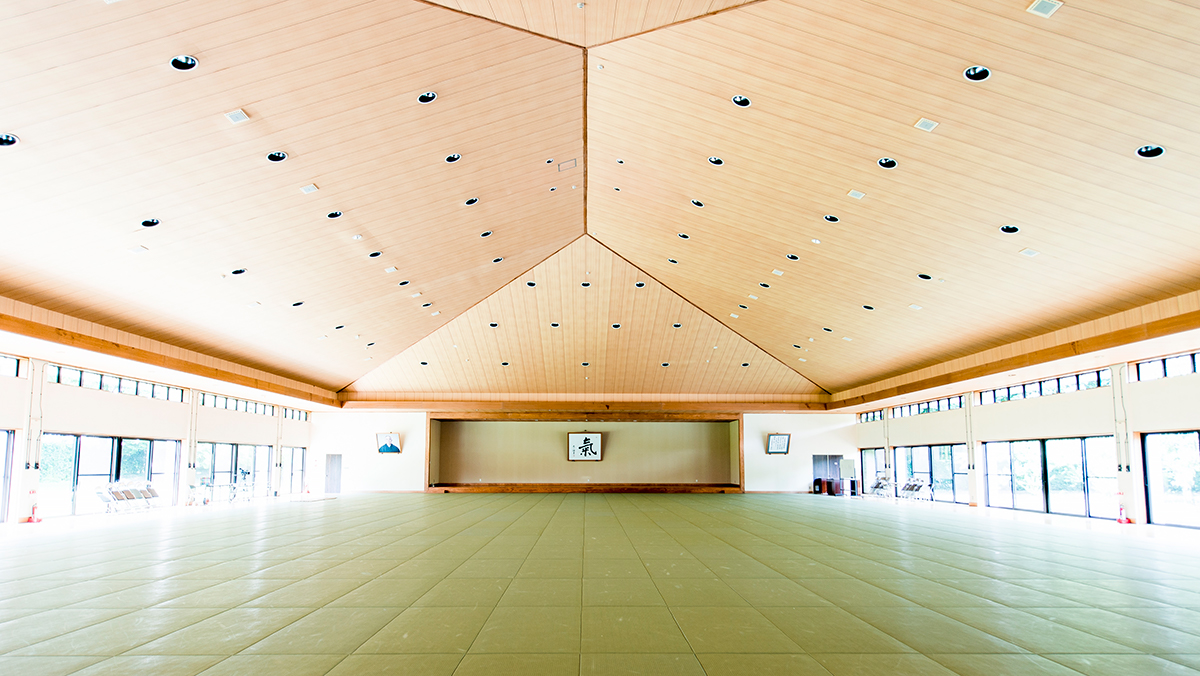In the practice of Shinshin Toitsu Aikido (Ki-Aikido), we attach great importance to “ukemi.”
The Japanese word “ukemi” is usually interpreted as “passive attitude’” “Passive” here meaning being in a defensive position to receive an attack by others.
However, in practice, ukemi is the exact opposite. It is active, meaning offensive.
Ukemi means “to defend oneself,” only in the sense of being ready, at the moment of being thrown, to make the next move instantly. The moment of being thrown is not the end, but the beginning of the next movement.
Therefore, in Ki-Aikido practice, you do not “win” because you throw, and you do not “lose” because you are thrown.
If your body is jarred or even injured by the throw, you will not be able to make your next move, or you will be slowed down. It is immediately after being thrown that your biggest moment of vulnerability occurs.
If the nage (thrower) is keeping one point, then the uke (person being thrown) must also need to keep one point. Even if the nage throws in an unreasonable way, if the ukemi is maintaining mind and body unified, forceful techniques will no longer work.
This is how we can understand the meaning of respecting the opponent and interacting based on the Five Principles of Shinshin Toitsu Aikido.
The Five Principles of Shinshin Toitsu Aikido
1, Ki is extending
2, Know your opponent’s mind
3, Respect your opponent’s Ki
4, Put yourself in your opponent’s place
5, Perform with confidence
About 20 years ago, one of the athletes I regularly coached was a professional boxer. He had come to me to learn “Keeping One Point” and “Ki Breathing” in order to be able to maintain his strength in stressful fights.
One day, as I explained the meaning of ukemi and showed him how to perform ukemi, he looked at this with longing. I asked him why he was so interested in this, as I thought there were no opportunities to do ukemi in boxing. He gave me an answer that I did not expect at the time.
He said, “Ideally, you should always be able to knock down your opponent, but against a really strong opponent that doesn’t always happen. When you get knocked down, the impact of the fall can be substantial, sometimes even more damaging than from the opponent’s punches, Therefore, I would like to study how to fall without being injured.”
In a competition where the goal is to knock down the opponent, the perspective of studying how to fall was very impressive. After that, this fighter trained ukemi until he could do it unconsciously and seemed to have acquired an exact feeling of it.
The same is true in everyday life.
Life is not always peaceful and there are times when we make mistakes and fall down. At those times, it is important to know “how to fall down.”
Effective Ukemi is directly related to the strength of mind.
Real strength is not about never falling down, but about instantly getting up and being ready and take the next action. Falling down is not the end of life.
You will find the real value of ukemi when you are faced with adversity.
Edited by: C. Curtis
Hawaii Ki Federation
https://www.hawaiikifederation.org/

